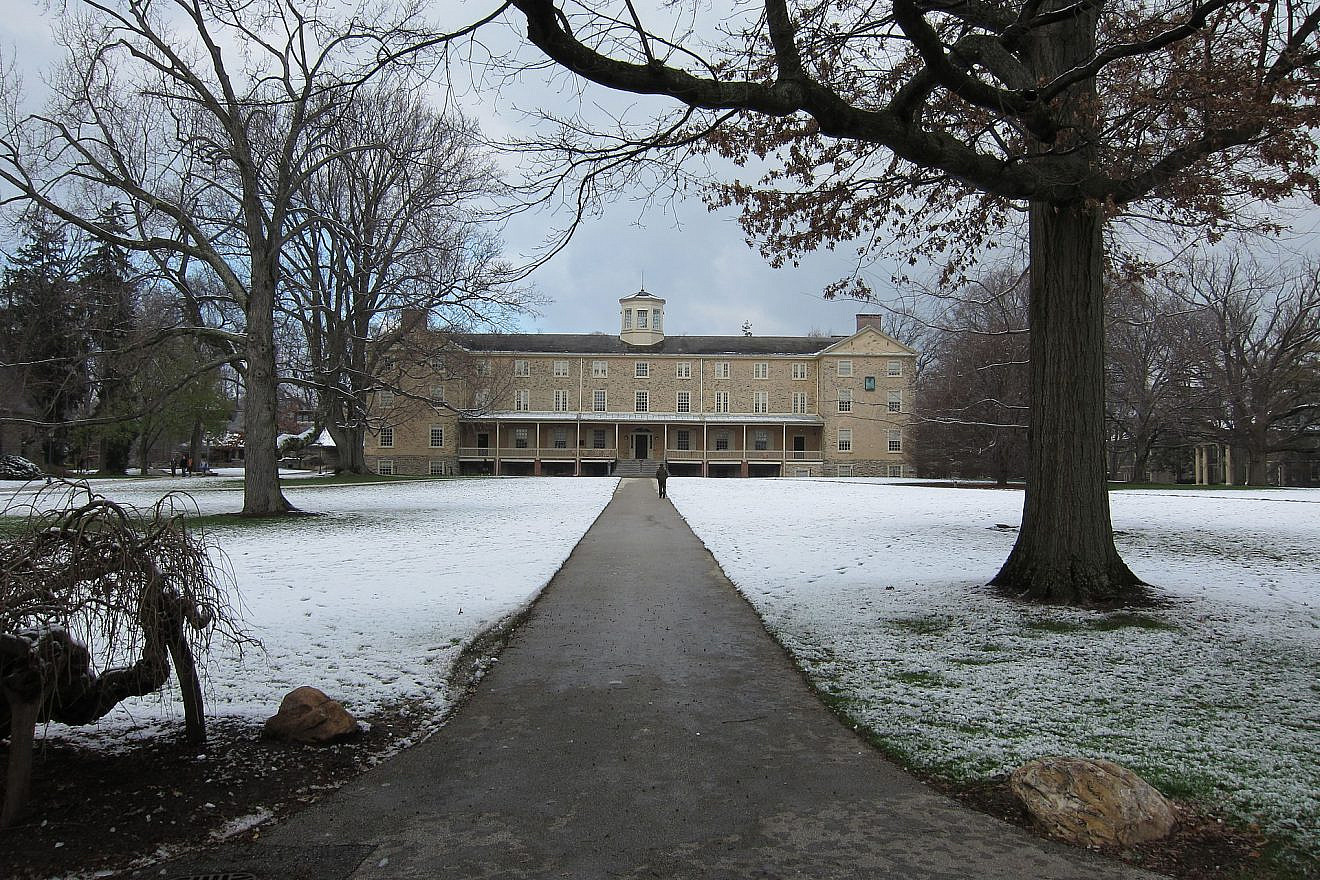A Jewish group at Haverford College in Pennsylvania filed a lawsuit on Monday in federal court alleging that the highly-ranked private liberal arts school violated students’ civil rights and created a pervasively hostile environment for Jews on campus.
The plaintiffs in the case are five students—one of them named—who are all part of the group, which consists of faculty, students, alumni and parents. The five say that the college has engaged in discrimination against pro-Israel Jewish students in violation of Title VI of the 1964 Civil Rights Act.
The suit is the latest in a wave of legal actions against colleges and universities that Jewish students have filed in court or with the U.S. Department of Education’s Office for Civil Rights. Harvard University, Columbia University, the University of Pennsylvania and New York University are among the institutions that have been sued by Jewish students for antisemitic discrimination in the wake of Oct. 7.
Jews at Haverford is represented in Monday’s suit by the Deborah Project, a public interest law firm that defends the civil rights of Jews on campus.
In its suit, the group details what Jewish students at Haverford have experienced since Oct. 7 and how administrators have responded—or failed to do so—to their complaints about antisemitic violations of Haverford’s conduct policies. (Haverford told JNS it doesn’t comment on pending litigation.)
In one example, Haverford president Wendy Raymond was asked about a series of social media posts by a professor at the college who reposted an image of a bulldozer used in the Oct. 7 attacks with the text, “We should never have to apologize for celebrating these scenes of an imprisoned people breaking free from their chains. This was a historic moment to be recorded in the history books.”
Several attendees at at Jewish student event asked the college president whether the post by Tarik Aougab—who remains a Haverford math and statistics professor—qualified as antisemitism.
“President Raymond answered that his statement ‘could be perceived in many ways,’” per the lawsuit. “Asked how she perceived it, she answered ‘I hear people breaking free from their chains.’”
Lori Lowenthal Marcus, legal director at the Deborah Project, told JNS that the complaint, which runs just under 100 pages long, “is stuffed with incident after incident of horrible, vile antisemitic statements, actions, activities, chants, disruptions, intimidation, harassment and oppression by members of the Haverford College community.”
High-level college administrators either “ignored, condoned or even praised” all of the incidents, she said.
“Haverford is a very small liberal arts college, and it is impossible for the complainants to ignore the hostility towards Jews permeating the campus if you live, eat, attend classes and/or participate in any events at Haverford,” she told JNS.
Two things make the lawsuit alleging Jew-hatred and breach of contract different from other similar suits, she said.
At Haverford, Jewish students, faculty and leaders engaged “with the highest level administrators, who still chose to not only rebuff the impassioned pleas for understanding and action by those administrators, but also to publicly praise the hostility and harassment towards the Jews at Haverford,” she said.
And unlike other complaints alleging antisemitism against colleges and universities, this suit was filed in federal court, rather than with the U.S. Department of Education, Lowenthal Marcus said.
The Haverford suit is similar to many other recent complaints about Jew-hatred on campus in that the students allege that Haverford has instituted a double standard, with hyper-vigilance for potential infractions against other minorities and a systematic decision by the administration to ignore antisemitism.
“Hate speech about Jews and Israel is permitted to the full extent of the First Amendment, whereas anything that might conceivably be understood as hate speech about any other minority group—as defined by the recipient minority group—is not tolerated, even when such speech would otherwise be protected by the First Amendment,” the suit says.
A Haverford alumnus asked John McKnight, the school’s dean, in March 2024 “about the abundance of speech on Haverford’s campus that is virulently hostile to Jews and Israel, asking whether Haverford would tolerate such speech directed at LGBTQIA students,” the suit adds. “Dean McKnight responded that the two groups are ‘not comparable.’”
In another instance, McKnight and the school’s athletic director Danielle Lynch told Ally Landau—the named plaintiff and a guard on the women’s basketball team—that she had to cancel an antisemitism awareness event at a game or else the game would be forfeited.
“An antisemitism awareness basketball game might prove too antagonistic to the pro-Palestinian students on campus,” she says that administrators told her.
“The college might not be able to control the anticipated mob of antisemites from storming the basketball court and refusing to leave,” the administrators added, per the suit. “Were that to happen, Ally was informed, the Haverford women’s basketball team would have to forfeit the game, as required by the NCAA rules.”
Raymond, McKnight and Jesse Lytle, a vice president and chief of staff at the college, “subsequently claimed to complaining parents and alumni that Ally Landau decided on her own to cancel the antisemitism awareness component of the game, and that Dean McKnight had offered to support the team if she chose to go forward with it,” the suit adds. “This is a lie.”


























